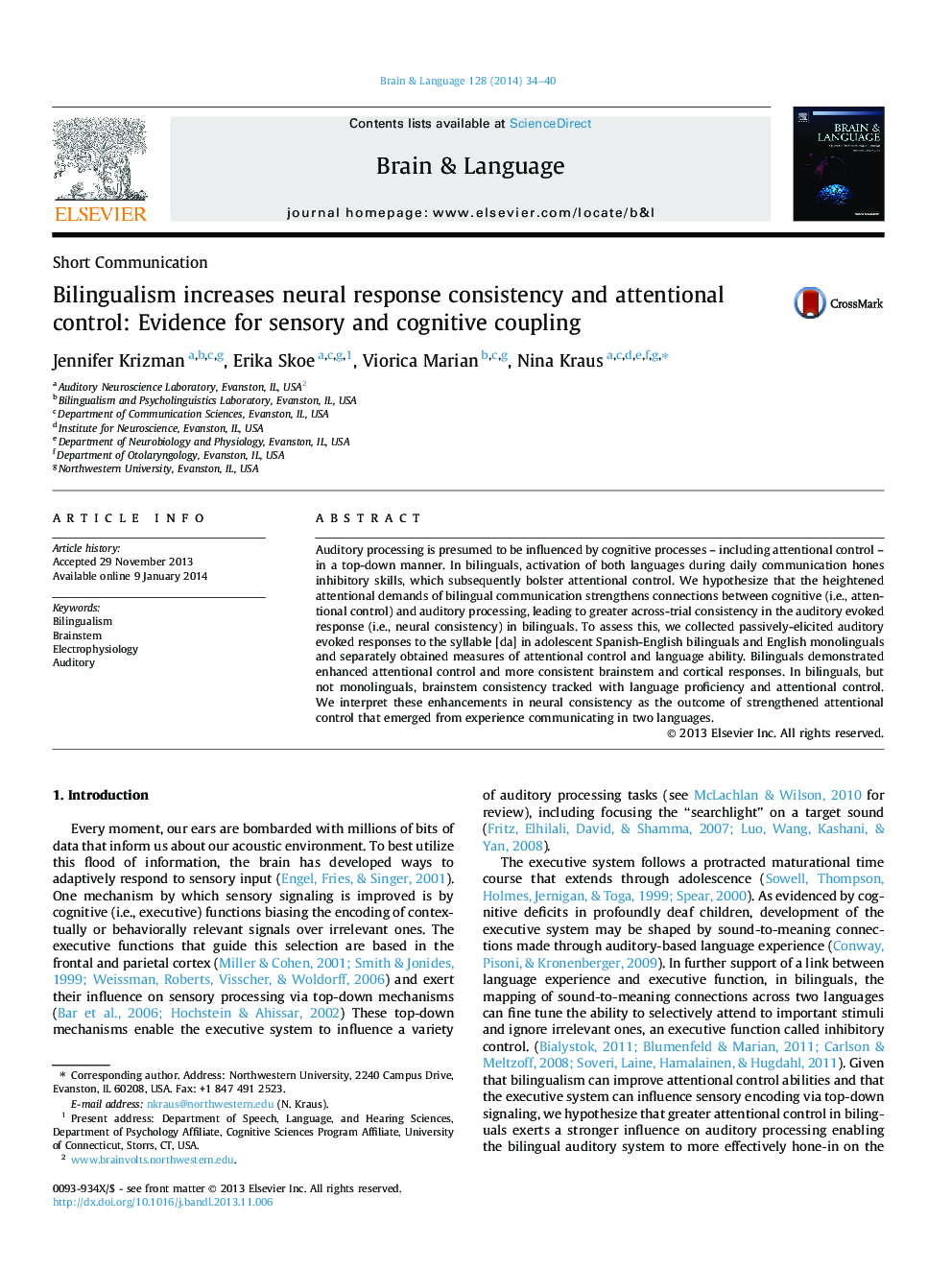| Article ID | Journal | Published Year | Pages | File Type |
|---|---|---|---|---|
| 925327 | Brain and Language | 2014 | 7 Pages |
•Speech-evoked brainstem activity relates to language proficiency in bilinguals.•Bilinguals show more consistent speech-evoked responses than monolinguals.•Attentional control may stabilize the neural response to speech in bilinguals.
Auditory processing is presumed to be influenced by cognitive processes – including attentional control – in a top-down manner. In bilinguals, activation of both languages during daily communication hones inhibitory skills, which subsequently bolster attentional control. We hypothesize that the heightened attentional demands of bilingual communication strengthens connections between cognitive (i.e., attentional control) and auditory processing, leading to greater across-trial consistency in the auditory evoked response (i.e., neural consistency) in bilinguals. To assess this, we collected passively-elicited auditory evoked responses to the syllable [da] in adolescent Spanish-English bilinguals and English monolinguals and separately obtained measures of attentional control and language ability. Bilinguals demonstrated enhanced attentional control and more consistent brainstem and cortical responses. In bilinguals, but not monolinguals, brainstem consistency tracked with language proficiency and attentional control. We interpret these enhancements in neural consistency as the outcome of strengthened attentional control that emerged from experience communicating in two languages.
